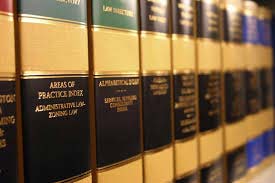Summary: Due to the intricacies of NFL rules and the law, Adrian Peterson may have a difficult time challenging his recent suspension.
On November 4, Adrian Peterson, running back for the Minnesota Vikings, pleaded no contest in a Texas court to reckless assault, a misdemeanor. According to Sports Illustrated, as a result, the Vikings have suspended Peterson. The suspension is also due to public reports that show photos of injuries that Peterson’s four-year-old son suffered when Adrian punished him by using a tree branch.
Peterson is on the NFL’s Exempt Commissioner Permission List (“exempt list”), and has sat out the last nine games—with pay. On Tuesday, Shyam Das, a neutral arbitrator, determined that the NFL may keep Peterson on the exempt list. Now, Peterson will likely appeal his suspension under a personal conduct policy. The National Football League Player’s Association (NFLPA) is advocating for Peterson in his appeals.
Here is an article about Peterson’s upcoming trial.
Peterson isn’t out of the woods quite yet. He faces a series of legal challenges as the case moves forward. For example, the NFLPA has demanded that a neutral third-party arbitrator hear Peterson’s appeal of his suspension, instead of commissioner Roger Goodell. An arbitrator was allowed in Ray Rice’s appeal, which was before U.S. District Judge Barbara Jones not too long ago. Of course, the expectation is that the NFL will allege that the Rice and Peterson cases are completely different. Goodell’s conduct is a central issue in Rice’s appeal, but is not an issue in Peterson’s. In Rice’s case, Rice alleges that Goodell punished him two times for conduct Goodell knew about the first time Rice was suspended. Goodell also admitted he mishandled portions of Rice’s case. In the Peterson case, there are no accusations of a “cover-up”; it is simply about the consequences of his parenting. Plus, just because Rice had a third-party arbitrator does not meant that Peterson will automatically be granted one.
Here is another article about the upcoming trial.
Another obstacle for Peterson is the fact that he must complete the appeals process in the NFL before he is able to take legal action. Many feel that Peterson will sue the NFL, but he will be unable to do so until he has used all of the internal appeals available to NFL players. Courts often dismiss legal claims when a plaintiff has not yet completed all internal appeals processes—the reason being that the court should be the final resort as a method to resolve disputes. In addition, a judge would need a complete record before being able to make an informed decision about a case.
Under Article 46 of the Collective Bargaining Agreement, or CBA, Peterson has an opportunity to appeal the suspension, but the appeal will be to Goodell himself. However, the CBA allows Goodell to review his own decisions, and the NFLPA has agreed. However, it’s possible that the NFL will change its policies for reviewing off-field behavior of its players. For example, the NFL plans to form an advisory committee that will review discipline for players.
Here’s an article about a suit filed against the NFL by Raiders cheerleaders.
Next, if Peterson’s appeal to the NFL fails, he may be able to seek a temporary restraining order from a court. Peterson’s ultimate goal is to play again. Since a lawsuit could take months to complete, Peterson could file for a temporary restraining order as soon as Goodell decides Peterson’s appeal. This order would last several weeks, and would not expire until a judge had a hearing on a motion for a preliminary injunction. Although chances are low that Peterson would be granted a restraining order, it is not impossible. Judges are reluctant to grant such extreme forms of relief. If the temporary restraining order was granted, it would probably be limited to the suspension only, and not address the exempt list. Ultimately, he would be paid again, but would not be playing football.
To obtain a temporary restraining order, Peterson would have to demonstrate to a judge that unless he is allowed to play football again, he will suffer irreparable harm. A lost salary is not likely to be convincing to a judge, as this could be resolved by awarding monetary damages later on. Peterson may be able to argue that not playing would damage his image and physical abilities, but it’s likely that the NFL would view these claims as subjective.
The judge would also require proof that the NFL suspension is arbitrary and unwarranted. Perhaps Peterson could show that he has already been suspended for nine games and has been unable to practice with his team. Goodell controls the exempt list. Greg Hardy, a Carolina Panthers player, is also on this list for domestic violence charges.
Peterson may have luck if he argues that the exempt list is a de facto suspension, which he may be able to do by showing that the list is not included in the CBA, but instead is in the NFL Player Personnel Policy Manual, which does not carry as much weight. Peterson may argue that since the CBA simply mentions the list and does not describe a detailed protocol, that it is an unfair disciplinary tool. However, the NFL would argue that the list is referenced in the CBA, and that terms agreed to by both the league and the players’ association outside the CBA are incorporated by reference into the CBA. Further, the commissioner has discretion over the list, and the league could also argue that since Peterson was paid while on the list, he was not actually suspended.
Peterson’s representatives, as well as the NFLPA, have also claimed that the NFL has acted outside the authority of the CBA when it disciplined Peterson. Many predict that the suspension for the rest of the season, including any playoff games and 2015 games, is grossly excessive and arbitrary. Peterson may be able to refer to other players who pleaded no contest to misdemeanors and did not receive as severe a punishment. For example, Cincinnati Bengals running back Cedric Benson was suspended for three games after he served a 20-day jail sentence for misdemeanor assault.
One issue is that Goodell has complete discretion in determining players’ suspensions under the personal conduct policy. Independent checks on his authority simply do not exist. Goodell can argue that Peterson’s punishment is consistent with past punishments, and that Peterson’s actions were more severe and more damaging to the NFL’s image since it involves the possible abuse of a child. Further, the commissioner is allowed to use a no contest plea to punish a player.
Some were surprised that the NFL referenced the new domestic violence policy when it spoke about Peterson’s suspension. Whereas it makes sense for many that Peterson was suspended for six games, which is the punishment for a first-time domestic violence offense, many state that the new policy does not cover violence against children. The policy states domestic violence is “…a prior incident before joining the NFL, or violence involving a weapon, choking, repeated striking, or when the act is committed against a pregnant woman or in the presence of a child.” It does not explicitly delineate acts against children, which are more often stated to be child abuse, not domestic violence.
Finally, federal courts typically will not review arbitration decisions. Das agreed to keep Peterson on the exempt list, and the Federal Arbitration Act notes that a court should only vacate a decision under extraordinary circumstances, such as decisions that disregard the law. Also, Peterson’s appeal, whether it is heard by a neutral arbitrator or Goodell, it will be deemed a form of arbitration, and, thus, unable to be appealed to a court. Courts have rarely reviewed the discipline of NFL players.
Photo credit: blogs.psychcentral.com








































